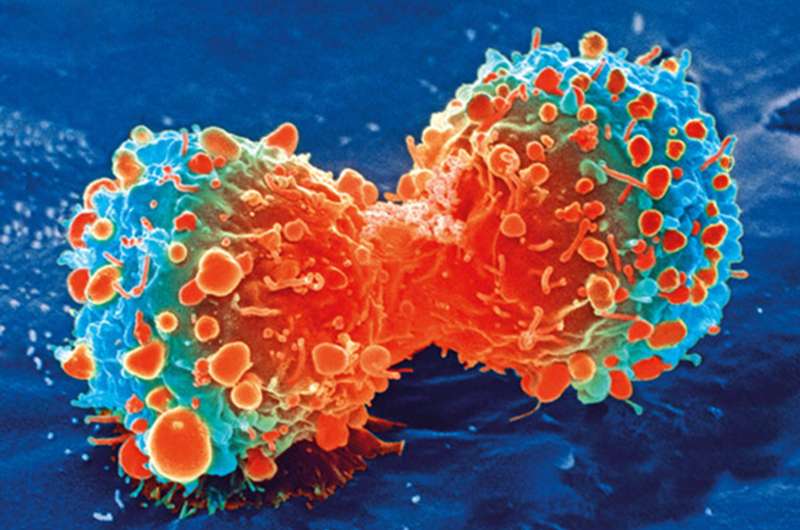Study finds brain tumour cells are killed by targeting marker

Brain tumours account for 20 per cent of all cases of childhood cancers as well as the highest number of cancer-related deaths in Canadian children under 20 years old. Despite improved clinical outcomes, patients live with extensive cognitive and physical delays resulting from toxicities associated with chemotherapy and radiation.
"Better, more targeted and less toxic therapies are desperately needed to enhance survival as well as the quality of life for those children who live long term. Our work represents an important step towards this goal," said Dr. Tamra Werbowetski-Ogilvie, Canada Research Chair in Neuro-oncology and Human Stem Cells and associate professor, biochemistry & medical genetics, Max Rady College of Medicine at the University of Manitoba.
A new study, published in Cancer Research, by Lisa Liang, Ph.D. candidate at the U of M, Werbowetski-Ogilvie and Dr. Vijay Ramaswamy at Sick Kids Hospital, has identified a marker CD271 on the surface of the "brain tumour stem cells" that could be used as a novel diagnostic tool for Sonic Hedgehog medulloblastoma tumours, one variant of medulloblastoma, the most common malignant primary pediatric brain tumour.
Werbowetski-Ogilvie's lab in the regenerative medicine program in the Max Rady College of Medicine, Rady Faculty of Health Sciences, also discovered that cells bearing this "CD271 mark" appear to be targeted and killed with a drug named selumetinib.
"This is a promising drug because it crosses the blood brain barrier, meaning it can actually get to the tumour, and is currently in clinical trials for treatment of other pediatric brain tumours," she said.
Her team has now moved into testing selumetinib in combination with other cancer-fighting drugs in a dish and in pre-clinical animal models with the long-term goal of increasing survival and enhancing the quality of life for those children who survive long term by de-escalating current cytotoxic therapies.
More information: Lisa Liang et al. CD271+ cells are diagnostic and prognostic and exhibit elevated MAPK activity in SHH medulloblastoma, Cancer Research (2018). DOI: 10.1158/0008-5472.CAN-18-0027













